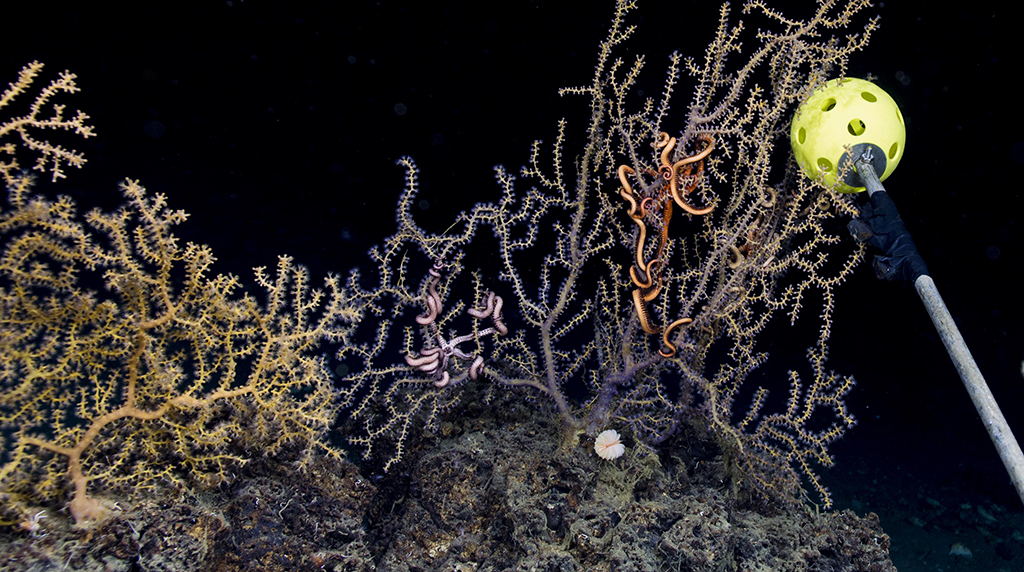April 23, 2019
Deep sea corals are found everywhere in the world's oceans, commonly at depths of 200 to 1000 meters (600-3000 feet). Octocorals (corals whose polyps have 8 tentacles) can be found as deep as 6000 meters (approximately 18000 feet). Deep sea corals live for hundreds to thousands of years, forming and sustaining long lasting deep sea ecosystems. Even though corals are animals, they resemble a tree with branches and these branches can grow at different rates. In the deep sea, growth occurs slowly over time, so damage to deep sea corals can have a long lasting impact on the entire ecosystem. Also, the ability of corals to recover from an anthropogenic impact, such as the Deepwater Horizon accident of 2010, is poorly understood.
A recent publication from ECOGIG researchers sought to determine the impact, if any, that the spill had on the growth of deep sea octocorals in the Gulf of Mexico. Several methods currently exist in order to estimate the age and growth of deep sea corals, however they generally require the collection of an entire (often very old) colony which can be very damaging to the coral ecosystem as a whole. The goal of this study was to measure the growth of deep sea octocorals without resorting to the collection of a coral from a community that had already been weakened by the spill. The researchers developed a non-destructive method of estimating coral growth. Between 2011 and 2017, they visited almost 200 corals annually with a ROV (Remotely Operated Vehicle) and took photographs of these corals at every visit. By comparing these photographs over time, they were able to document baseline growth rates, growth patterns, colony age and the impact of the spill on the coral's growth over time, without damaging the coral communities.
The researchers found that overall, deep sea corals grow incredibly slowly. They also found that corals from the same species could grow at different rates, depending on their location in the Gulf of Mexico, implying that some corals could be more vulnerable to anthropogenic activities if they live in unfavorable locations. Surprisingly, the oil spilled during the Deepwater Horizon accident did not have a long lasting negative impact on the coral's growth. In fact, impacted corals appeared to be growing faster than non-impacted corals, to compensate for the damage incurred. However, a large number of corals lost whole branches during the spill, and growth rates were too slow to compensate for this branch loss. These findings indicate that impacted corals in the Gulf of Mexico could take decades to grow back and fully recover from the impacts of the oil spill.
You can read the entire study online here.


















 back to top
back to top